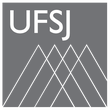PROFNIT
PROGRAMA DE PÓS-GRADUAÇÃO EM REDE NACIONAL EM PROPRIEDADE INTELECTUAL E TRANSFERÊNCIA DE TECNOLOGIA PARA INOVAÇÃO - PROFNIT
PRÓ-REITORIA DE PESQUISA E PÓS-GRADUAÇÃO
Phone: Not available
E-mail:
paulosiqueira@ufsj.edu.br
Banca de QUALIFICAÇÃO: ISABELA GRACIANA DE SOUSA CANHONI
Uma banca de QUALIFICAÇÃO de MESTRADO foi cadastrada pelo programa.STUDENT : ISABELA GRACIANA DE SOUSA CANHONI
DATE: 07/06/2022
TIME: 09:00
LOCAL: Videoconferência
TITLE:
ANALYSIS OF THE USE OF ARTIFICIAL INTELLIGENCE - AI, AS INTELLECTUAL PROPERTY, AND THE CONSEQUENCES IN THE BRAZILIAN LEGAL SPHERE
KEY WORDS:
Artificial Intelligence, Innovation, Intellectual Property, Civil Liability
PAGES: 16
BIG AREA: Ciências Sociais Aplicadas
AREA: Direito
SUBÁREA: Direito Privado
SPECIALTY: Direito Civil
SUMMARY:
Artificial Intelligence "is a branch of computer science research that seeks, through computational symbols, to build mechanisms and/or devices that simulate the human being's ability to think, solve problems, that is, to be intelligent" (SANTOS, 2021). At the National Institute of Intellectual Property – INPI, AI is analyzed from the perspective of a Computer Program, defined in law 9,609 of February 19, 1998. Thus, the general objective of this study is to analyze the legal consequences brought about by the use of Intelligence Artificial and how Brazilian legislation has protected the common citizen, facing possible conflicts involving this technology, based on the lecture given by Minister Luiz Fux, of the Federal Supreme Court, in September 2019, at the event “New Trends in Common Law – Artificial Intelligence, Economic Analysis of Law and Civil Procedure”, in London – England Thus, the intention is to point out the probable gaps in Brazilian legislation involving issues related to the use of Artificial Intelligence, such as Intellectual Property, knowing the various practices and related forms of protection using this innovation and examining the various ways in which it can be used in other countries and understand how AI impacts society as a whole. To this end, the available national and international bibliography will be used, as well as articles and technology and legal journals that report on the proposed topic. The method used will be the inductive one, starting from the lecture given by the STF Minister, Luiz Fux. The present work is justified in view of the likely consequences that the use of AI can generate in the judicial sphere, whether in the protection of intellectual property or in the protection of the rights of ordinary citizens, exposed to a possible harmful event, as a result of its use of Artificial Intelligence by third parties. The legal system protects Artificial Intelligence as Intellectual Property, leaving the common citizen exposed, without safeguards in relation to the possibility of being a victim of harmful events caused by technology. There is still no legal consensus on the indispensability of creating specific standards or institutes to address issues related to AI. There are several questions, but there is little literature to help us unravel this issue.
BANKING MEMBERS:
Presidente - 1444161 - DANE TADEU CESTAROLLI
Externa à Instituição - CELIMARA TEIXEIRA DE ALMEIDA
Externo à Instituição - RODRIGO MORAES FERREIRA
Notícia cadastrada em: 20/05/2022 16:42
SIGAA | NTInf - Núcleo de Tecnologia da Informação - | Copyright © 2006-2024 - UFSJ - sigaa03.ufsj.edu.br.sigaa03



